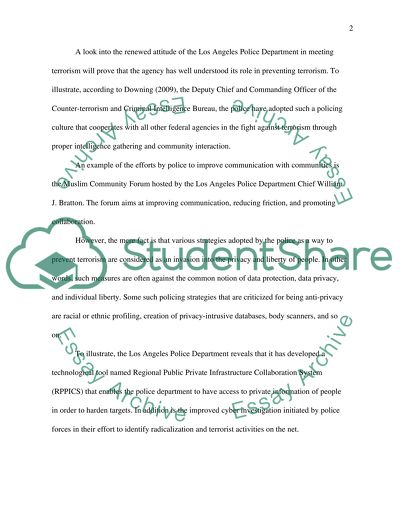Cite this document
(“Ethics, Terrorism, and the Future of Policing Essay - 1”, n.d.)
Retrieved from https://studentshare.org/sociology/1395066-ethics-terrorism-and-the-future-of-policing
Retrieved from https://studentshare.org/sociology/1395066-ethics-terrorism-and-the-future-of-policing
(Ethics, Terrorism, and the Future of Policing Essay - 1)
https://studentshare.org/sociology/1395066-ethics-terrorism-and-the-future-of-policing.
https://studentshare.org/sociology/1395066-ethics-terrorism-and-the-future-of-policing.
“Ethics, Terrorism, and the Future of Policing Essay - 1”, n.d. https://studentshare.org/sociology/1395066-ethics-terrorism-and-the-future-of-policing.


